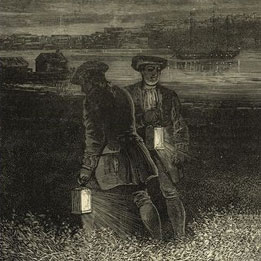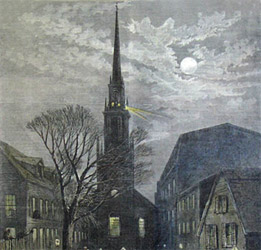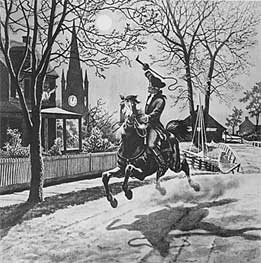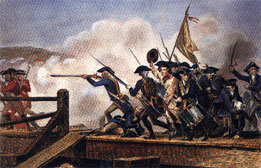April 27, 2005
New Republic literary editor Leon Wieseltier described Amichai's work this way: "Perhaps the most remarkable thing about Yehuda Amichai is his composure. From a life cluttered with ancient torments, with the collective memory of his people's pains and the personal recollection of his own, he calmly extracts the essences, and leaves the rest for laughter. These are elementary poems by an elementary man."
This one, i love:
A Man In His LifeA man doesn't have time in his life
to have time for everything.
He doesn't have seasons enough to have
a season for every purpose. Ecclesiastes
Was wrong about that.A man needs to love and to hate at the same moment,
to laugh and cry with the same eyes,
with the same hands to throw stones and to gather them,
to make love in war and war in love.
And to hate and forgive and remember and forget,
to arrange and confuse, to eat and to digest
what history
takes years and years to do.A man doesn't have time.
When he loses he seeks, when he finds
he forgets, when he forgets he loves, when he loves
he begins to forget.And his soul is seasoned, his soul
is very professional.
Only his body remains forever
an amateur. It tries and it misses,
gets muddled, doesn't learn a thing,
drunk and blind in its pleasures
and its pains.He will die as figs die in autumn,
Shriveled and full of himself and sweet,
the leaves growing dry on the ground,
the bare branches pointing to the place
where there's time for everything.
Posted by: annika at
12:11 AM
| Comments (8)
| Add Comment
Post contains 329 words, total size 2 kb.
April 20, 2005
It's a long one, but if you've never read it please enjoy it all the way to the end. Longfellow was great at telling a story, and this is a great story to tell. Listen to the galloping rhythm of the meter as you read. It's wonderful.
Paul Revere's RideListen my children and you shall hear
Of the midnight ride of Paul Revere,
On the eighteenth of April, in Seventy-five;
Hardly a man is now alive
Who remembers that famous day and year.He said to his friend, "If the British march
By land or sea from the town to-night,
Hang a lantern aloft in the belfry arch
Of the North Church tower as a signal light,--
One if by land, and two if by sea;
And I on the opposite shore will be,
Ready to ride and spread the alarm
Through every Middlesex village and farm,
For the country folk to be up and to arm."
Then he said "Good-night!" and with muffled oar
Silently rowed to the Charlestown shore,
Just as the moon rose over the bay,
Where swinging wide at her moorings lay
The Somerset, British man-of-war;
A phantom ship, with each mast and spar
Across the moon like a prison bar,
And a huge black hulk, that was magnified
By its own reflection in the tide.Meanwhile, his friend through alley and street
Wanders and watches, with eager ears,
Till in the silence around him he hears
The muster of men at the barrack door,
The sound of arms, and the tramp of feet,
And the measured tread of the grenadiers,
Marching down to their boats on the shore.Then he climbed the tower of the Old North Church,
By the wooden stairs, with stealthy tread,
To the belfry chamber overhead,
And startled the pigeons from their perch
On the sombre rafters, that round him made
Masses and moving shapes of shade,--
By the trembling ladder, steep and tall,
To the highest window in the wall,
Where he paused to listen and look down
A moment on the roofs of the town
And the moonlight flowing over all.Beneath, in the churchyard, lay the dead,
In their night encampment on the hill,
Wrapped in silence so deep and still
That he could hear, like a sentinel's tread,
The watchful night-wind, as it went
Creeping along from tent to tent,
And seeming to whisper, "All is well!"
A moment only he feels the spell
Of the place and the hour, and the secret dread
Of the lonely belfry and the dead;
For suddenly all his thoughts are bent
On a shadowy something far away,
Where the river widens to meet the bay,--
A line of black that bends and floats
On the rising tide like a bridge of boats.Meanwhile, impatient to mount and ride,
Booted and spurred, with a heavy stride
On the opposite shore walked Paul Revere.
Now he patted his horse's side,
Now he gazed at the landscape far and near,
Then, impetuous, stamped the earth,
And turned and tightened his saddle girth;
But mostly he watched with eager search
The belfry tower of the Old North Church,
As it rose above the graves on the hill,
Lonely and spectral and sombre and still.
And lo! as he looks, on the belfry's height
A glimmer, and then a gleam of light!
He springs to the saddle, the bridle he turns,
But lingers and gazes, till full on his sight
A second lamp in the belfry burns.
A hurry of hoofs in a village street,
A shape in the moonlight, a bulk in the dark,
And beneath, from the pebbles, in passing, a spark
Struck out by a steed flying fearless and fleet;
That was all! And yet, through the gloom and the light,
The fate of a nation was riding that night;
And the spark struck out by that steed, in his flight,
Kindled the land into flame with its heat.
He has left the village and mounted the steep,
And beneath him, tranquil and broad and deep,
Is the Mystic, meeting the ocean tides;
And under the alders that skirt its edge,
Now soft on the sand, now loud on the ledge,
Is heard the tramp of his steed as he rides.It was twelve by the village clock
When he crossed the bridge into Medford town.
He heard the crowing of the cock,
And the barking of the farmer's dog,
And felt the damp of the river fog,
That rises after the sun goes down.
It was one by the village clock,
When he galloped into Lexington.
He saw the gilded weathercock
Swim in the moonlight as he passed,
And the meeting-house windows, black and bare,
Gaze at him with a spectral glare,
As if they already stood aghast
At the bloody work they would look upon.It was two by the village clock,
When he came to the bridge in Concord town.
He heard the bleating of the flock,
And the twitter of birds among the trees,
And felt the breath of the morning breeze
Blowing over the meadow brown.
And one was safe and asleep in his bed
Who at the bridge would be first to fall,
Who that day would be lying dead,
Pierced by a British musket ball.
You know the rest. In the books you have read
How the British Regulars fired and fled,---
How the farmers gave them ball for ball,
From behind each fence and farmyard wall,
Chasing the redcoats down the lane,
Then crossing the fields to emerge again
Under the trees at the turn of the road,
And only pausing to fire and load.So through the night rode Paul Revere;
And so through the night went his cry of alarm
To every Middlesex village and farm,---
A cry of defiance, and not of fear,
A voice in the darkness, a knock at the door,
And a word that shall echo for evermore!
For, borne on the night-wind of the Past,
Through all our history, to the last,
In the hour of darkness and peril and need,
The people will waken and listen to hear
The hurrying hoof-beats of that steed,
And the midnight message of Paul Revere.
Stirring. Doesn't that give you goose-bumps?
The other poems i've memorized include Jabberwocky, The Star Spangled Banner and Desdemona's lines from a scene i did for a college acting class. The only one still left in my head is Jabberwocky.
If you're interested, here's a history of the various frigates named H.M.S. Somerset.
Posted by: annika at
12:01 AM
| Comments (6)
| Add Comment
Post contains 1144 words, total size 7 kb.
April 13, 2005
Here's a poem by W. D. Snodgrass, perfect for April, which also deals with the midlife crisis theme.
April InventoryThe green catalpa tree has turned
All white; the cherry blooms once more.
In one whole year I haven't learned
A blessed thing they pay you for.
The blossoms snow down in my hair;
The trees and I will soon be bare.The trees have more than I to spare.
The sleek, expensive girls I teach,
Younger and pinker every year,
Bloom gradually out of reach.
The pear tree lets its petals drop
Like dandruff on a tabletop.The girls have grown so young by now
I have to nudge myself to stare.
This year they smile and mind me how
My teeth are falling with my hair.
In thirty years I may not get
Younger, shrewder, or out of debt.The tenth time, just a year ago,
I made myself a little list
Of all the things I'd ought to know,
Then told my parents, analyst,
And everyone who's trusted me
I'd be substantial, presently.I haven't read one book about
A book or memorized one plot.
Or found a mind I did not doubt.
I learned one date. And then forgot.
And one by one the solid scholars
Get the degrees, the jobs, the dollars.And smile above their starchy collars.
I taught my classes Whitehead's notions;
One lovely girl, a song of Mahler's.
Lacking a source-book or promotions,
I showed one child the colors of
A luna moth and how to love.I taught myself to name my name,
To bark back, loosen love and crying;
To ease my woman so she came,
To ease an old man who was dying.
I have not learned how often I
Can win, can love, but choose to die.I have not learned there is a lie
Love shall be blonder, slimmer, younger;
That my equivocating eye
Loves only by my body's hunger;
That I have forces true to feel,
Or that the lovely world is real.While scholars speak authority
And wear their ulcers on their sleeves,
My eyes in spectacles shall see
These trees procure and spend their leaves.
There is a value underneath
The gold and silver in my teeth.Though trees turn bare and girls turn wives,
We shall afford our costly seasons;
There is a gentleness survives
That will outspeak and has its reasons.
There is a loveliness exists,
Preserves us, not for specialists.
Posted by: annika at
02:38 AM
| Comments (4)
| Add Comment
Post contains 458 words, total size 3 kb.
The poet Charles Bernstein doesn't think National Poetry Month is good for poetry. He writes: "promoting poetry as if it were an 'easy listening' station just reinforces the idea that poetry is culturally irrelevant and has done a disservice not only to poetry deemed too controversial or difficult to promote but also to the poetry it puts forward in this way." i see where he's coming from. That's why at annika's journal i do my own dissservice to poetry all year long. Anyways, i liked this idea from Bernstein's essay:
As an alternative to National Poetry Month, I propose that we have an International Anti-Poetry month. As part of the activities, all verse in public places will be covered over—from the Statue of Liberty to the friezes on many of our government buildings. Poetry will be removed from radio and TV (just as it is during the other eleven months of the year). Parents will be asked not to read Mother Goose and other rimes to their children but only ... fiction. Religious institutions will have to forego reading verse passages from the liturgy and only prose translations of the Bible will recited, with hymns strictly banned. Ministers in the Black churches will be kindly requested to stop preaching. Cats will be closed for the month by order of the Anti-Poetry Commission. Poetry readings will be replaced by self-help lectures. Love letters will have to be written only in expository paragraphs. Baseball will have to start its spring training in May. No vocal music will be played on the radio or sung in the concert halls. Children will have to stop playing all slapping and counting and singing games and stick to board games and football.Read the whole essay here.
Posted by: annika at
02:26 AM
| Comments (1)
| Add Comment
Post contains 306 words, total size 2 kb.
April 06, 2005
He wasn't alone.
His muscles grew into the flesh of the crowd, energy their pulse,
As long as they held a hammer, as long as his feet felt the ground.
And a stone smashed his temples and cut through his heart's chamber.
They took his body and walked in a silent line
Toil still lingered about him, a sense of wrong.
They wore gray blouses, boots ankle-deep in mud.
In this, they showed the end.
How violently his time halted: the pointers on the low voltage dials jerked, then dropped to zero again.
White stone now within him, eating into his being, taking over enough of him to turn him into stone.
Who will lift up that stone, unfurl his thoughts again under the cracked temples?
So plaster cracks on the wall.
They laid him down, his back on a sheet of gravel.
His wife came, worn out with worry; his son returned from school
Should his anger now flow into the anger of others?
It was maturing in him through his own truth and love
Should he be used by those who came after, deprived of substance, unique and deeply his own?
The stones on the move again; a wagon bruising the flowers.
Again the electric current cuts deep into the walls.
But the man has taken with him the world's inner structure,where the greater the anger, the higher the explosion of love.
Ironically, while the quarry killed the subject of that poem, it actually saved Karol's life. Many people from his town had been rounded up by the Nazis and sent to Auschwitz and other death camps, including theatre friends and University teachers. (The town of Wadowice was about 20% Jewish before the war.) Karol was himself arrested in 1942, but released because quarry work was considered a "vital industry."
More poetry by the late Pope can be found at the Frontline site, along with a discussion of his work by poet Lynn Powell.
[cross-posted at A Western Heart]
Posted by: annika at
07:39 AM
| Comments (7)
| Add Comment
Post contains 394 words, total size 2 kb.
64 queries taking 0.0765 seconds, 179 records returned.
Powered by Minx 1.1.6c-pink.













